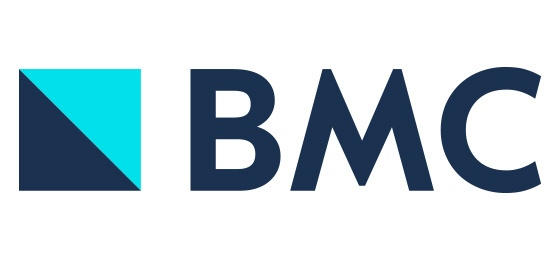Rebuilding for Equity in Primary Care: Designing the Equity-Oriented Primary Care Innovation Collaborative

As we work to rebuild after the pandemic and prepare for future pandemics, we have an opportunity to partner with communities to ensure that their primary care, public health, and social service systems are designed to promote racial health equity. Primary care clinicians and associated frontline staff have the most frequent direct person-to-person contact across a patient’s lifespan. However, most health concerns that primary care clinicians and patients face are often tied to underlying challenges in choosing and accessing essential resources. Research has shown that increased access to high-quality, primary care can improve community health and health equity.[1] Yet, despite clear indicators in the research, primary care systems practices, policies and services continue to be misaligned, exacerbating barriers to access quality primary care for communities most challenged by deep-rooted, systemic racial inequities.
Racial health equity means that everyone has a fair and just opportunity to be as healthy as possible, despite one’s race or ethnicity. Racial health equity requires moving beyond just improving health care service delivery, to addressing root causes and mitigating unfair barriers to health such as racial bias, discrimination, and their impact on the patient’s experience within the healthcare system. Other root causes might include power imbalances, access to jobs with fair wages, access to quality education, housing stability, and a safe living environment, particularly for historically and structurally marginalized communities.[2]
The COVID-19 pandemic has further exposed the urgent need to build and maintain alignment between primary care systems and community-based social services and primary care systems. At the height of the pandemic, communities of color experienced the highest rates of mortality due to COVID-19. The same communities were challenged to access adequate essential resources, including food, housing, employment, and other social determinants of health which impact health outcomes.
Furthermore, the lack of equitable primary health care for historically and structurally marginalized communities continues to erode the trust, utilization, and usefulness of primary health services. Paired with unfair governmental policies, the healthcare system is a major contributor to the widening of racial and health inequities.[3] In addition to increased access to primary care through community-based social and health-related services, implementing equity-oriented healthcare approaches which aim to advance health equity in the healthcare system has been proven to produce more equitable health outcomes.[4] Therefore, increasing equity in primary care in collaboration with community-based partners has the potential to address the address effects of racial and institutional bias within the healthcare system, one of the root causes that prevent patient priorities from being met.
In the United States, it is urgent that the health care system design more equitable practices and policies in partnership with the communities they serve such that there is alignment with social services that focuses on the needs of the individual patient, or person-focused care. Primary care must welcome communities impacted by systems of oppression to define their own health concerns and co-design their own solutions with their care team by acknowledging the role everyone plays in the healthcare system to further health equity and end perpetual racism.
Health Lead’s Shared Learning Models
Health Leads sits at the intersection of healthcare and public health, bringing together diverse stakeholders to solve complex issues, such as inequities in primary care. Since 2015, Health Leads’ application of shared learning models within the healthcare system has continued to evolve. Prior to the onset of the 2020 COVID-19 pandemic, Health Leads began applying lessons learned from multiple shared learning projects, including The Boston Foundation Collaborative (TBF) and the Collaborative To Advance Social Health Integration (CASHI). Using a modified version of the Institute for Healthcare Improvement’s Breakthrough Series (BTS) collaborative learning model, CASHI convened 21 innovative primary care teams and community partners across the country committed to increase access to essential resources to address communities needs and improve community health. The results of CASHI yielded significant institutional and community-level improvements, which set a standard of foundational elements in place to deepen impact on health equity; including structures like patient advisory councils, know-how around patient-reported outcome measures (PROMs), Community Health Worker (CHW) integration and support, and deep relationships with community partners supported by shared resources.
Primary Care Teams Committed to Reducing Racial Health Inequities
With the experience and lessons learned from the implementation of IHI’s idealized Design Process, Health Leads set out to design an 18-month shared learning collaborative that went beyond healthcare improvement to innovation and redesign in collaboration with the communities they serve. Health Leads also set out to shift the focus of the shared learning model itself to address systemic barriers by integrating concepts of racial health equity into the redesign of the primary healthcare system, a concept known as equity-oriented health care.
To design the Equity-Oriented Primary Care Innovation Collaborative (EOPC), Health Leads conducted focus groups to glean insight into barriers preventing primary care from being more equity-oriented. The themes of the focus group conversations with primary care and social health providers reflected five key requirements to advance the integration of equity in primary care:
- New payment models
- Investment in community-based assets
- Changes with a system’s level impact
- Multi-sector care teams collaborating at the network level
- Patient and community engagement in infrastructure changes.
The team used these focus group findings, evidence in the literature, and key frameworks to identify three primary focus areas for innovation:
- Mitigating institutional racism & bias within primary care organizations’ policies and practices;
- Alignment of primary care strategies with community-prioritized public health efforts;
- Developing sustainable financial models for new equitable care models.
From there, the Health Leads team created a baseline criterion by which to identify three geographically diverse primary care sites that encompassed existing community-based partnerships, data reporting and transparency using race, ethnicity and language data, as well as a commitment at all levels of the organization to impact diversity, racial health equity, inclusion and access to care for historically and structurally marginalized communities. The three identified primary care sites formed multidisciplinary teams that represented the primary care partners and public health, social services and local community members, including those to whom the work is intended to benefit.
Impact within the Healthcare Sector
Since launching in March 2021, the EOPC Innovation Collaborative has aimed to demonstrate how primary care services can be redesigned to center on racial equity to drive measurable improvements in partnership with communities experiencing the most adverse health outcomes using the EOPC Roadmap. Through this work, the team expects to bring value by:
- Demonstrating how to drive health equity in social health integration in various community health settings;
- Moving from recommending to requiring practices we know will drive health equity;
- Supporting primary care in generating cutting-edge, innovative strategies and practices for applying equity principles, like co-creation, to social health integration.
This work aims to yield a template of innovative strategies that other primary care practices can adapt, spread, and scale to minimize the effects of systemic inequities and racial bias.
[1] Starfield, B. “Primary Care and Equity in Health: The Importance to Effectiveness and Equity of Responsiveness to Peoples’ Needs.” Humanity & Society 33, no. 1-2 (February 2009): 56-73. DOI: 10.1177/016059760903300105
[2] Robert Wood Johnson Foundation. Accessed on 5.7.2020: https://www.rwjf.org/en/library/research/2017/05/what-is-health-equity-.html
[3] Marmot M. The health gap: the challenge of an unequal world: the argument. Int J Epidemiol 2017;46:1312–8.doi:10.1093/ije/dyx163 pmid:http://www.ncbi.nlm.nih.gov/pubmed/28938756
[4] Ford-Gilboe, Marilyn, C. Nadine Wathen, Colleen Varcoe, Carol Herbert, Beth E. Jackson, Josée G. Lavoie, Bernadette Bernie Pauly, et al. “How Equity-Oriented Health Care Affects Health: Key Mechanisms and Implications for Primary Health Care Practice and Policy.” The Milbank Quarterly 96, no. 4 (2018): 635–71. https://doi.org/10.1111/1468-0009.12349.




